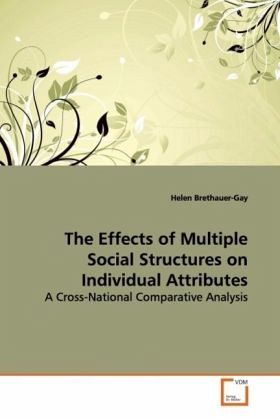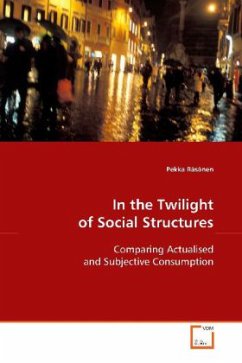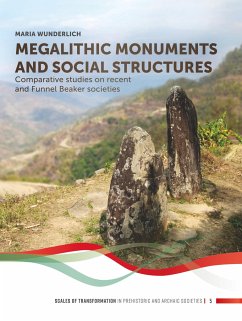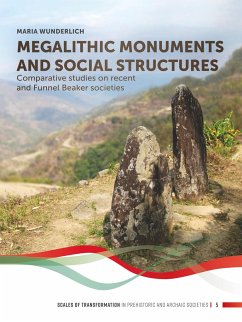
The Effects of Multiple Social Structures on Individual Attributes
A Cross-National Comparative Analysis
Versandkostenfrei!
Versandfertig in 6-10 Tagen
45,99 €
inkl. MwSt.

PAYBACK Punkte
23 °P sammeln!
How social structural components affect individualattitudes and behaviors is an ongoing theme insociology. This analysis sought to explore theindependent and relative effects of the socialstructural components of class, gender, and religionon the individual personality attributes oftolerance, trust, life satisfaction, and a sense ofhaving free choice and control over life outcomes. Itexplored which structural element had the strongereffect on the individual psychological attributes,the similarities and differences in the effects, andit tested the intersections of structural componentsfor inter...
How social structural components affect individual
attitudes and behaviors is an ongoing theme in
sociology. This analysis sought to explore the
independent and relative effects of the social
structural components of class, gender, and religion
on the individual personality attributes of
tolerance, trust, life satisfaction, and a sense of
having free choice and control over life outcomes. It
explored which structural element had the stronger
effect on the individual psychological attributes,
the similarities and differences in the effects, and
it tested the intersections of structural components
for interactive effects across six countries.
Universal effects were not found. However, much
variation in the effects of social structural
components across the selected countries was found.
This analysis indicates not only that there are
significant differences between the social locations
formed by the social structures, but that the effects
from the independent variables vary dependent upon
the social locations. This analysis encourages the
use of intersectional methods and may be of interest
to social psychologists and others working in the
fields of race, class, or gender.
attitudes and behaviors is an ongoing theme in
sociology. This analysis sought to explore the
independent and relative effects of the social
structural components of class, gender, and religion
on the individual personality attributes of
tolerance, trust, life satisfaction, and a sense of
having free choice and control over life outcomes. It
explored which structural element had the stronger
effect on the individual psychological attributes,
the similarities and differences in the effects, and
it tested the intersections of structural components
for interactive effects across six countries.
Universal effects were not found. However, much
variation in the effects of social structural
components across the selected countries was found.
This analysis indicates not only that there are
significant differences between the social locations
formed by the social structures, but that the effects
from the independent variables vary dependent upon
the social locations. This analysis encourages the
use of intersectional methods and may be of interest
to social psychologists and others working in the
fields of race, class, or gender.












